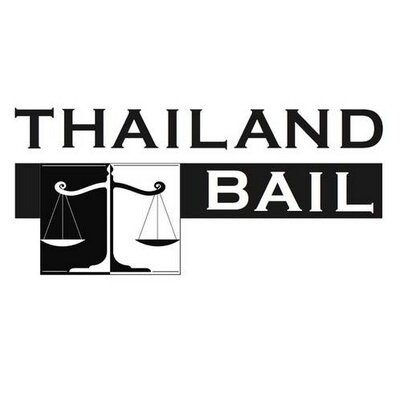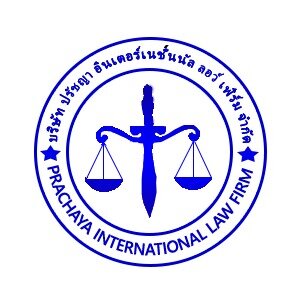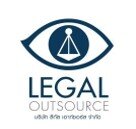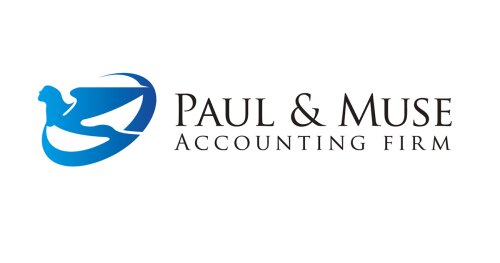ทนายความ กฎหมายกัญชา ที่ดีที่สุดใน ประเทศไทย
แบ่งปันความต้องการของคุณกับเรา รับการติดต่อจากสำนักงานกฎหมาย
ฟรี ใช้เวลา 2 นาที
หรือปรับแต่งการค้นหาของคุณโดยเลือกเมือง:
รายชื่อทนายความที่ดีที่สุดใน ประเทศไทย
คู่มือกฎหมายเขียนโดย Smart Legal Solutions:
- Main Legal Measures to Protect Foreign Investment in Thailand
- The importance of the geographical indications for the Thai economy
1. เกี่ยวกับกฎหมายกัญชาในประเทศไทย
กัญชาในประเทศไทยมีการเปลี่ยนแปลงที่สำคัญในช่วงหลังปี พ.ศ. 2564 โดยมุ่งเน้นการใช้งานทางการแพทย์และงานวิจัย มากกว่าการใช้งานเพื่อวัตถุประสงค์ทั่วไป
เดิมกัญชาอยู่ภายใต้กรอบการควบคุมอย่างเข้มงวดในฐานะยาเสพติด แต่ปัจจุบันมีกฎระเบียบที่เปิดโอกาสให้ปลูก ใช้ และจำหน่ายเพื่อวัตถุประสงค์ทางการแพทย์และอุตสาหกรรม ภายใต้ใบอนุญาตและข้อกำหนดความปลอดภัย
หน่วยงานสาธารณสุขและบังคับใช้กฎหมายมีบทบาทสำคัญในการกำกับดูแล ตั้งแต่กระบวนการขอใบอนุญาต ปฏิบัติการผลิต ไปจนถึงการห้ามโฆษณาและจำหน่ายให้กับผู้ไม่เหมาะสม
2. ทำไมคุณอาจต้องการทนายความ
คุณอาจต้องการทนายความเมื่อเผชิญสถานการณ์เฉพาะเจาะจงในการใช้งานกัญชาที่ต้องการใบอนุญาตและการปฏิบัติตามกฎหมาย
- คุณต้องขออนุญาตปลูกหรือสกัดกัญชาสำหรับการแพทย์ แต่ไม่แน่ใจขั้นตอนและเอกสารที่ต้องยื่น
- คุณถูกตรวจค้นหรือถูกกล่าวหาคอบครองกัญชาในสถานที่สาธารณะ หรือกรณีที่มีข้อสงสัยเรื่องความชอบด้วยกฎหมาย
- คุณทำสัญญากับผู้ผลิต ผู้จำหน่าย หรือคลังเก็บเกี่ยวกัญชาที่อาจมีเงื่อนไขทางกฎหมายเฉพาะ
- คุณมีธุรกิจด้านกัญชาที่ต้องการโครงสร้างภาษี แบ่งกลุ่มผลิตภัณฑ์ หรือการโฆษณาที่สอดคล้องกับข้อบังคับ
- คุณต้องดำเนินคดีแพ่งหรือต่อสู้กับข้อกล่าวหาที่เกี่ยวข้องกับกัญชา และต้องการแนวทางการยื่นคำร้อง
3. ภาพรวมกฎหมายท้องถิ่น
กฎหมายเกี่ยวกับกัญชาที่สำคัญแบ่งเป็น 2-3 กรอบหลัก โดยมีการแก้ไขและประกาศเพิ่มเติมเมื่อจำเป็น
- พระราชบัญญัติกัญชา พ.ศ. 2565 - กำหนดกรอบการปลูก ผลิต จำหน่าย และใช้งานด้านการแพทย์และอุตสาหกรรม โดยมีข้อกำหนดการอนุญาตและความปลอดภัย บังคับใช้เพื่อให้เกิดความชัดเจนในการใช้งาน
- พระราชบัญญัติกัญชากัญชง (ฉบับแก้ไข) พ.ศ. 2565 - เน้นการควบคุมการปลูกและการค้ากัญชง และบทลงโทษที่เกี่ยวข้องกับการใช้งานที่ไม่ถูกต้อง
- ระเบียบกระทรวงสาธารณสุข ที่เกี่ยวข้องกับการอนุญาตปลูก การผลิต และการจำหน่ายกัญชาและกัญชง ซึ่งมีการปรับปรุงตามสถานการณ์และการใช้งานทางการแพทย์
4. คำถามที่พบบ่อย
อะไรคือความหมายของกัญชาในกรอบกฎหมายไทยในปัจจุบัน?
กัญชาอยู่ภายใต้กรอบกฎหมายที่อนุญาตให้ปลูก ใช้เพื่อการแพทย์และการวิจัยภายใต้ใบอนุญาต รวมถึงการควบคุมการซื้อขายและการโฆษณา โดยมีบทลงโทษหากฝ่าฝืนขั้นตอน
อย่างไรฉันจะขอใบอนุญาตปลูกกัญชาสำหรับการแพทย์?
คุณต้องยื่นขอผ่านหน่วยงานที่รับผิดชอบ เช่น สธ หรือหน่วยงานที่รับผิดชอบ โดยมีเอกสารยืนยันการใช้ทางการแพทย์และรายละเอียดสถานที่ปลูก รวมถึงมาตรการความปลอดภัย
เมื่อไหร่กัญชาถือว่าเป็นทรัพย์สินส่วนบุคคลที่ถูกต้องตามกฎหมาย?
เมื่อคุณมีใบอนุญาตถูกต้องหรืออยู่ในกรอบการใช้งานที่ได้รับอนุมัติจากหน่วยงานรัฐ และคุณปฏิบัติตามข้อกำหนดในการปลูก ผลิต หรือจำหน่าย
ที่ไหนควรเริ่มต้นสำหรับผู้ที่ไม่ใช่ผู้ประกอบการ but ต้องการใช้กัญชาทางการแพทย์?
เริ่มต้นด้วยปรึกษาผู้ให้บริการด้านสุขภาพและทนายความ เพื่อทำความเข้าใจสิทธิและข้อจำกัด พร้อมทั้งตรวจสอบใบอนุญาตที่จำเป็น
ทำไมการโฆษณากัญชาจึงถูกควบคุมอย่างเข้มงวด?
เพื่อป้องกันการใช้งานโดยเด็กและเยาวชน รวมถึงลดการหลอกลวงทางการตลาด ตามแนวทางของกระทรวงสาธารณสุขและกฎหมายที่เกี่ยวข้อง
สามารถทนายความช่วยลดความเสี่ยงด้านสัญญากับผู้ผลิตได้อย่างไร?
ทนายความสามารถตรวจสอบข้อกำหนดในสัญญา แก้ไขเงื่อนไขที่ไม่ชอบธรรม และให้คำแนะนำเรื่องการบังคับใช้สัญญา หากเกิดข้อพิพาท
ควรค่าใช้จ่ายในการว่าจ้างทนายความด้านกัญชาประมาณเท่าใด?
ค่าใช้จ่ายขึ้นกับความซับซ้อนของคดี จำนวนเอกสาร และระยะเวลาการดำเนินการ โดยทั่วไปจะมีค่าปรึกษาเบื้องต้น และค่าใช้ชั่วโมงการทำงาน
สามารถรับคำปรึกษากฎหมายด้านกัญชาออนไลน์ได้หรือไม่?
ได้ แต่ควรตรวจสอบความน่าเชื่อถือของทนายและความปลอดภัยของข้อมูล ส่วนใหญ่จะมีทั้งปรึกษาออนไลน์และพบปะในสำนักงาน
อย่างไรฉันจะเตรียมเอกสารให้ทนายอย่างมีประสิทธิภาพ?
รวบรวมเอกสารที่เกี่ยวข้อง เช่น ใบอนุญาต ประวัติการแพทย์ สัญญา และหลักฐานการซื้อขาย พร้อมบันทึกเหตุการณ์ที่เกี่ยวข้อง เพื่อให้ทนายเห็นภาพชัดเจน
ที่ไหนฉันควรหาทนายความด้านกัญชาที่เหมาะสม?
เลือกทนายความที่มีประสบการณ์ด้านกฎหมายกัญชาโดยเฉพาะ และมีผลงานในกรณีคล้ายคลึง ตรวจสอบคำติชมและการให้คำปรึกษาเบื้องต้น
สามารถยืดหยุ่นการเรียกร้องคดีหรือต่อรองได้หรือไม่?
ได้หากมีเหตุผลทางกฎหมายที่ชัดเจน ทนายความจะช่วยประเมินทางเลือก เช่น การไกล่เกลี่ยหรือการยื่นคำร้องต่อศาล
ที่ไหนฉันควรเริ่มต้นหาทนายความด้านกัญชา?
เริ่มจากแหล่งข้อมูลรัฐและองค์กรวิชาชีพที่มีฐานข้อมูลทนายความ ผู้ที่เชี่ยวชาญด้านกัญชาจะมีประสบการณ์และเครือข่ายในกรอบกฎหมายนี้
สามารถถามคำถามเชิงเฉพาะเกี่ยวกับกรณีที่ซับซ้อนได้อย่างไร?
คุณควรเตรียมคำถามชัดเจน พร้อมร่างข้อเท็จจริงพื้นฐาน จากนั้นสอบถามทนายเพื่อประเมินความเป็นไปได้และแนวทางการดำเนินคดี
5. ทรัพยากรเพิ่มเติม
- กระทรวงสาธารณสุข ประเทศไทย - นโยบายและระเบียบด้านสุขภาพรวมถึงกัญชา
- สำนักงานคณะกรรมการอาหารและยา - กำกับการปลูก ผลิต และจำหน่ายกัญชาและกัญชง
- ราชกิจจานุเบกษา - พระราชบัญญัติคัญชาและระเบียบข้อกฎหมายที่เกี่ยวข้อง
6. ขั้นตอนถัดไป
- ระบุกรอบความต้องการของคุณ กรณีแพทย์ ประสงค์ปลูกเพื่อการใช้งานส่วนตัว หรือวัตถุประสงค์ทางภาคธุรกิจ ระบุให้ชัดเจน
- ตรวจสอบสถานะกฎหมายล่าสุด ตรวจสอบการแก้ไขล่าสุดและแนวทางปฏิบัติในพื้นที่ของคุณ
- ค้นหาทนายความที่เชี่ยวชาญกัญชา ตรวจสอบประสบการณ์กรณีจริงและความน่าเชื่อถือ
- เตรียมปรึกษาเบื้องต้น นัดปรึกษาเพื่อประเมินแนวทางและค่าใช้จ่าย โดยขอประมาณการล่วงหน้า
- เตรียมเอกสารและข้อมูลCollect ใบอนุญาต, แปลนสถานที่ปลูก, เอกสารแพทย์ และสัญญาที่เกี่ยวข้อง
- ขอใบเสนอราคาจากทนายความ ขอค่าสำรวจความซับซ้อนและระยะเวลาการดำเนินการ
- ตัดสินใจและเริ่มดำเนินการ เซ็นสัญญาและเริ่มกระบวนการทางกฎหมายหรือการปรึกษาเพิ่มเติม
Lawzana ช่วยคุณค้นหาทนายความและสำนักงานกฎหมายที่ดีที่สุด ใน ประเทศไทย ผ่านรายชื่อผู้เชี่ยวชาญด้านกฎหมายที่มีคุณสมบัติเหมาะสมที่คัดสรรและตรวจสอบล่วงหน้า แพลตฟอร์มของเรานำเสนอการจัดอันดับและโปรไฟล์โดยละเอียดของทนายความและสำนักงานกฎหมาย ช่วยให้คุณเปรียบเทียบตามสาขากฎหมาย รวมถึง กฎหมายกัญชา ประสบการณ์ และความคิดเห็นของลูกค้า
แต่ละโปรไฟล์ประกอบด้วยคำอธิบายเกี่ยวกับสาขากฎหมายของสำนักงาน รีวิวจากลูกค้า สมาชิกในทีมและหุ้นส่วน ปีที่ก่อตั้ง ภาษาที่พูด ที่ตั้งสำนักงาน ข้อมูลการติดต่อ การมีตัวตนบนโซเชียลมีเดีย และบทความหรือแหล่งข้อมูลที่เผยแพร่ สำนักงานส่วนใหญ่บนแพลตฟอร์มของเราพูดภาษาอังกฤษและมีประสบการณ์ทั้งในเรื่องกฎหมายท้องถิ่นและระหว่างประเทศ
ขอใบเสนอราคาจากสำนักงานกฎหมายชั้นนำ ใน ประเทศไทย — รวดเร็ว ปลอดภัย และไม่ยุ่งยาก
ข้อจำกัดความรับผิดชอบ:
ข้อมูลที่ให้ไว้ในหน้านี้มีวัตถุประสงค์เพื่อเป็นข้อมูลทั่วไปเท่านั้นและไม่ถือเป็นคำแนะนำทางกฎหมาย แม้ว่าเราจะพยายามตรวจสอบความถูกต้องและความเกี่ยวข้องของเนื้อหา แต่ข้อมูลทางกฎหมายอาจเปลี่ยนแปลงได้ตามกาลเวลา และการตีความกฎหมายอาจแตกต่างกันไป คุณควรปรึกษาผู้เชี่ยวชาญด้านกฎหมายที่มีคุณสมบัติเหมาะสมเพื่อขอคำแนะนำเฉพาะสำหรับสถานการณ์ของคุณเสมอ
เราปฏิเสธความรับผิดทั้งหมดสำหรับการกระทำที่ทำหรือไม่ทำตามเนื้อหาในหน้านี้ หากคุณเชื่อว่าข้อมูลใดไม่ถูกต้องหรือล้าสมัย โปรด contact us และเราจะตรวจสอบและแก้ไขตามความเหมาะสม
เรียกดูสำนักงานกฎหมาย กฎหมายกัญชา ตามเมืองใน ประเทศไทย
ปรับแต่งการค้นหาของคุณโดยเลือกเมือง
















